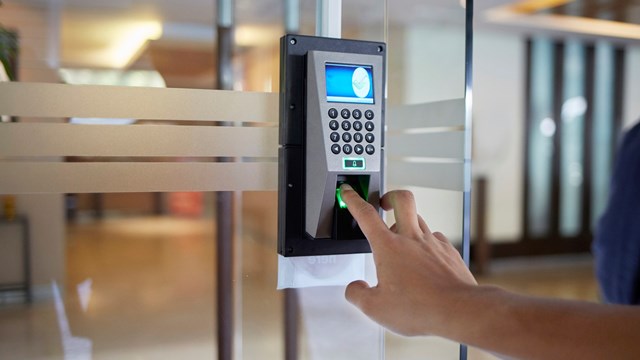Whether you live in a Midtown high-rise or in a more spread-out outer-borough HOA, security—for both property and physical safety—is an important issue in any condo community. Who can come in, at what times, how long they can stay, and how freely they can move about the property is of concern to any conscientious board/management team. In order to maintain a safe, secure building or association, administrators must draft and enforce clear rules regarding non-resident visitors and guests—while at the same time not overreaching and attempting to regulate how unit owners conduct themselves in their own apartment units.
Guests, Sublettors, Roommates
“In New York, you’re involved in a vertical living arrangement,” says Phyllis Weisberg, a partner with the law firm of Montgomery McCracken Walker & Rhoads, LLP in Manhattan, “and you have a lot of people living in a building. Who’s sharing your halls? Who’s riding on your elevators? Is it somebody who’s been vetted in any fashion, and whom you’re comfortable with?”
Indeed, the sheer number of residents living in any one building can be the greatest impediment to safety. All it takes is one person to hit the buzzer and let in a presumed pizza-delivery guy, and the next thing you know, a rash of burglaries goes down. This is the main reason why boards are so strict when it comes to guests. Not that your visiting college buddy is going to steal stuff from the apartment down the hall, but that buddy simply doesn’t have as much of a vested interest in keeping the building secure.
“Owners care about the building a lot more than people who are in there for a week, or two weeks or whatever it is,” Weisberg says. “Short-term occupants or guests may not care if they’re blasting music during a party, because they’re not going to be around. They may not care if they walk their dog and the dog soils the hallway. They just don’t have the same stake in the community. And therefore, in general, they can present problems. Will they abide by the rules that are important for quality of life?”
Guests very well may. Sublettors may not. Illegal sublettors have even less incentive to abide by the rules. This is not to say that all guests and sublettors will trash the joint, of course—only that, as Weisberg points out, the only people who have a real incentive to hew to the rules are the owners of the apartment or condo unit. “The problem is that guests aren’t owners,” says Jeff Stillman, vice president of Stillman Property Management in Mamaroneck, “so they aren’t necessarily going to care for the building as much as an owner would.”
Co-op bylaws are often written with this in mind, to encourage owner occupancy and preserve value for all. “Most co-op documents have provisions that allow for guests of shareholders to stay for up to one month, provided that the shareholder is also occupying the apartment,” explains Mindy H. Stern, a partner with the law firm of Schoeman, Updike, Kaufman, Stern, LLP. “So the first sort of policy leave-in for that typical clause is that people do not want a ‘guest’ to actually be an illegal sublet for which there’s no approval.”
The distinction can be a slippery slope at times, but the general rule of thumb is that a guest is someone who is there at the same time as the owner. “Beyond that, people want to know that the guests aren't going to behave in ways that negatively affect the quality of life of other people in the building,” Stern says. “There’s an assumption that if the shareholder is there with the guest, there will be better control over those sorts of things. Because the shareholders know the rules and regulations about where they’re supposed to throw out their garbage, whether they’re allowed to have kids playing in the hallway or not… all the quality of life things that residents are concerned about.”
“Guest,” incidentally, is not the same as “roommate.” New York is an expensive place to live, and if all co-ops and condos outlawed the taking of roommates, the real estate market might well collapse. “There is a roommate law in New York,” Stern says. “People are allowed to have roommates, and the roommate can either contribute towards the monthly carrying costs of the apartment, or not.” But there is a catch to the roommate law, Weisberg notes: “It allows you to have the roommate, but you have to be occupying the apartment as well. And that applies regardless of what a particular building's bylaws might say.”
Legalese
Rules and regulations concerning guests are, like all rules are regulations, more controlled in a co-op than a condo. Co-ops are more cooperative, as the name suggests, and thus regard the rights of the group—in particular, the quality of life of everyone in the building—as superior to the rights of the individual shareholders. Condos have rules, too, but those tend to have fewer teeth, as owning a condominium is more or less like owning a house that just happens to be part of an otherwise shared building.
“In co-ops, there are certain restrictions on guests,” Stillman says. “Typically in the bylaws they have restrictions on how long a guest can stay” (as previously mentioned, a month is the usual term) “and then it gets a little trickier if a guest comes in and the lawful residents of the apartment are not there with them. That kind of situation could actually be construed as an illegal sublet. In condominiums, there really aren’t any restrictions on guests, generally.”
Now, having a prohibition against long-term guests (or short-term renters, depending how you want to look at it) and discovering that someone is harboring them are two different things. While the theory goes that guests have no incentive to create a harmonious living space in a building, the fact is, bad behavior only attracts attention. Both guests and illegal sublettors can be quiet as proverbial mice (real mice, of course, are quite noisy).
“In larger buildings, it’s not going to be as much as an issue as in smaller ones,” Stillman says. “It’s a lot easier for a long-term guest to stay under the radar and unnoticed in a large building.”
Weisberg notes that there is some logic to what is often a zero-tolerance policy. “A lot of buildings are very strict, even if guests are well-behaved. Because once you let one person break the rules, then there’s a concern that it’s going to be a free-for-all.”
Furthermore, there are other issues beyond the potential adverse impact on quality of life.
“One thing that can be problematic is if the guests have a pet,” Stillman says. “They might try to sneak one in, and especially in buildings where there are no pets allowed, it becomes a problem. I’ve seen situations where a guest brings in a pet, and then the owner wants the pet to stay there for good.”
So what do you do is you suspect the "guest" in apartment 12B is actually an illegal sublettor? “You report it to the managing agency, and they investigate it,” Weisberg says. “People in condos are allowed to lease their apartments, and if a proper lease package was submitted to the board, and the board was given the opportunity to waive its right of first refusal, it may be perfectly legitimate, what’s going on in that apartment.”
Again, co-ops have more authority to act in these cases than do condos. “In a co-op, it would again be the managing agent. In that case, if there’s a lease it would have to be approved by the board. In most co-ops, you can’t sublet your apartment without the board consenting,” she says. “And the board has the right to grant or withhold consent for any reason or no reason.”
Bed & Breakfast–and Bylaws
Some suggest that the most insidious new threat to peace and harmony in New York's residential buildings is how easy modern technology makes subletting a co-op apartment or condo unit. Online services like Airbnb and VRBO, which facilitate renting vacation properties the world over, have made boards, property managers, and residents re-think their definition of 'guests'.
“Websites like Airbnb are encouraging people to do things that violate the bylaws or, in a co-op, the proprietary lease,” says Weisberg. The gains for doing so are obvious: renting a Manhattan apartment for a week could pay for the apartment for a few months, potentially. But there are perils involved that go beyond whether an Airbnb renter ruins the new paint job in the bathroom. Once strangers are allowed in the building, anything can happen. “They’re making it sound like such a nice thing, and it may not be,” says Weisberg, “but there are risks involved. Are the people being vetted? This trend raises a lot of issues.”
Stern agrees. “There’s a lot of controversy about that right now. There’s been a lot of discussion about whether it can be and should be more regulated in condos and co-ops, and that discussion is ongoing.”
The fate of sites like Airbnb is still to be determined. In the meantime, the smart play is to remember the words of Benjamin Franklin: “Guests are like fish. They begin to smell after three days.”
Greg Olear is a freelance writer and a frequent contributor to The Cooperator.







Comments
Leave a Comment